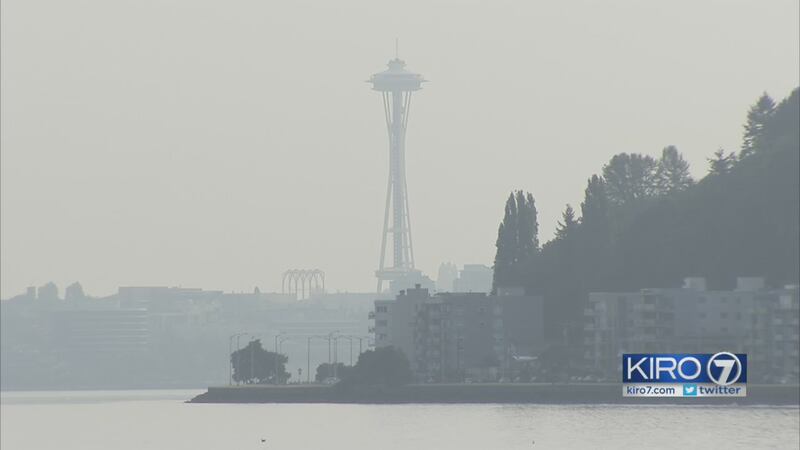SEATTLE — On Tuesday, we will set a new record at 52 straight days without measurable rain in Seattle if no rain falls by midnight.
Despite some showers a week ago, the official range gauge for Seattle — located at Sea-Tac Airport — did not get the required 0.01 inch of rain to end the “dry streak” for the city on Monday.
Monday marked the 51st day since measurable rain fell at Sea-Tac, tying the record-longest streak set in 1951.
If no rain falls on Tuesday, that record will be broken.
Rain will not fall this work week, so that record will be set Tuesday at 52 days, and we’ll continue to add to it.
TRENDING NOW:
- Glen Campbell dead at 81
- Distracted driving ticket numbers are in, and here they are
- Couple killed in crash 1 day after wedding
- PHOTOS: Washington's missing children (Updated August 4, 2017)
- VIDEO: Investigation underway into sinking of Seattle-based crab boat
There are indications of a weather pattern change starting this weekend with more clouds and cooler temperatures, though it’s unclear whether those additional clouds will be able to squeeze out even a few light showers.
%
%
Fire danger is now listed by the Washington Department of Natural Resources as “high” across all of Western Washington and “extreme” in much of central and eastern Washington, including Chelan and Kittitas counties in the KIRO 7 viewing area.
So with the extended dry weather, why haven’t multiple, large fires been breaking out? We have been fortunate so far this summer season to have avoided the afternoon and evening thunderstorms in the mountains and lowlands that often occur in the summer. These thunderstorms often produce what we refer to as “dry lightning” which is simply a thunderstorm that produces lightning without accompanying wetting rain. This is the cause for a large percentage of wildfires in Washington. It isn’t clear that an expected weather pattern change this weekend and next week will increase our chance for dry lightning, but it is possible.
The long-term outlook doesn’t indicate a reversal to a wetter weather pattern anytime soon. In fact, the Climate Prediction Center currently projects better odds of a warmer-than-normal winter season (possibly influenced by El Nino) with near normal precipitation most probable.
TRENDING NOW:
- Former cheerleader accused of burying newborn pleads ‘not guilty' to murder
- Teen electrocuted while tubing on Puyallup River, family says in lawsuit
- Driver hits 2 members of Sammamish work crew
- PHOTOS: Changing Seattle: the businesses going away
- VIDEO: Investigation underway into sinking of Seattle-based crab boat
Cox Media Group







